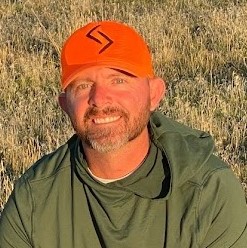Drilled Shaft Inspection
The CIT Program provides the following methods for obtaining certification.
1. Drilled Shaft Inspection Course and Exam
Online course with exam included - course and exam are online and access is available upon registration. The course is available year round with the course period designated in your registration confirmation email and the CanvasPro course page. You must complete the course and subsequent exam(s) by the stated completion date in your confirmation email and in CanvasPro. This option is required for initial certification. The written exam can be taken and submitted one time. It can be taken at the student’s location and requires an approved proctor. Registration is necessary if a retake is needed.
Prerequisite: Pass the Basic Math exam and the Basic Inspection exam prior to taking the online course.
2. Drilled Shaft Inspection Recertification Exam
The recertification option allows a person to take the written exam for recertification without attending class. This option is recommended for individuals who have at least five years experience. The exam is online and available upon registration. The exam can be taken and submitted one time. It can be taken at the student’s location and requires an approved proctor. Registration is necessary if a retake is needed.
Prerequisite: Must hold a current Basic Inspection certification.
Course Description
This class is designed to provide KDOT inspectors the basic tools to inspect drilled shafts utilizing Kansas specifications. This course focuses on the background behind design construction and repair of drilled shafts and meets the qualification standards required by the Federal Highway Administration.
Instructors
|
Kyle Halverson - Chief Geologist Kyle has been with KDOT since 2008. In 2016 he was promoted to Chief Geologist where he oversees Professional Geologist and Engineering Technicians within the KDOT Geology Section. Kyle’s principal duty is to provide geology recommendations and construction guidance on KDOT projects. In his time at KDOT he has taught various KDOT CIT courses, such as: Quarry Monitor Inspection, Driven Pile Inspection, and Drill Shaft Inspection. As part of the KDOT Geology Section, Kyle like many others in that section are diverse in design recommendations and construction practices. The Geology Section is one of only a few sections within KDOT that participate in all phases of a project, from preliminary design through construction. Additionally, Kyle participates in many national organizations and Committees. He holds leadership positions on the Highway Geology Symposium, Shallow Exploration Drillers Clinic and TRB Committee on Soil Properties and Geotechnical Site Characterization. |
Mervin Lare - Field Construction Engineer Mervin graduated from KSU in 2009 in Engineering and started working for KDOT shortly after. In his spare time he enjoys martial arts, gardening and hunting. His mission at KDOT is to educate people about the importance of protecting our lakes and streams for future generations to enjoy.
|
Seth Weber - Professional Civil Engineer I - Squad Leader Seth works in the KDOT Bureau of Structures and Geotechnical Services (BSGS) designing and reviewing bridges for Kansas Highways. He has designed and reviewed bridges for the past 6 years and recently became a Squad leader within the bureau. Seth also works within the Signing and Lighting squad within KDOT’s BSGS and designs overhead sign structures.”
|
Learning Objectives
- How and why drilled shafts are designed.
- Geologic issues with all phases of drilled shafts.
- The role the inspector will play in the construction of the drilled shafts.
- Equipment utilized.
- Construction methods of the installation of drilled shafts.
- Specifications for the installation of drilled shafts.
- How to handle and who to contact when things do not go as planned.
Course Material
Download the Drilled Shaft Inspection workbook (PDF).
Testing Information
- Exam: This course requires a written exam.
- Score: A score of 70% or higher is needed to pass.

